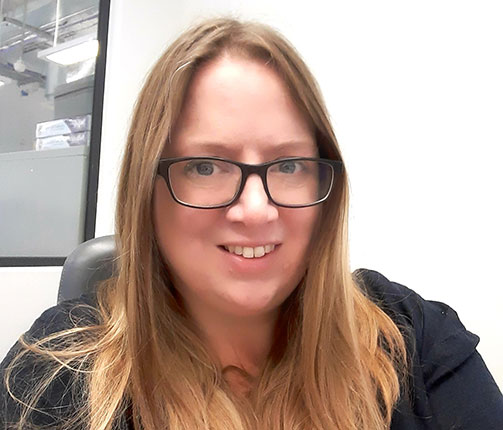UCLH RRL Manager Julie Dilling explains how pass-through numbering has improved turnaround times (TATs) and facilitated efficiencies within the sample reception areas (SRA).
<
There’s a saying that a chain is only as strong as its weakest link. In the diagnostics “chain”, the pre-analytical link is most vulnerable, of which SRA plays a key role. Thousands of GP samples arrive in our labs each day, all mixed, all needing attention to sort, check, label, LIMS registration and prepare for analysis. Each manual step increases the risk of error and adds to the processing time.
Pass-through numbering has been operational within the Trust Hospitals and Sonic Healthcare UK for some time. It has enabled the use of the ATRAS (Automated Tube Registration and Sorting) system which removes the need to label, register on LIMS and even sort samples in SRA. Until recently, the ATRAS could not be used for GP samples as the systems were not compatible.
Pass-through numbering for GPs went live in early February 2023. IT development linked the GP and lab systems, producing a universal barcode for requesting and analysis. This may sound straightforward - but the technology that has enabled the system, the logistics and the many stakeholders involved makes it a highly complex operation.
The change has, however, now strengthened both the pre-analytical link and the diagnostic chain.
How the change was made
T-Quest is the electronic ordering system used by the North Central London (NCL) GPs to request pathology tests on their patients, which are then sent to the labs for analysis and reporting.
Although the system was already in use, it was not fully developed for pass-through numbering. The NCL NIMS-Interoperability Programme provided the funding to make this possible.
John Ricketts, the ICT Programme Manager, played a pivotal role in the development and successful roll out. The key challenges included the IT development of T-Quest into an operational pass-through numbering system, ensuring all GP surgeries and Trusts could provide the correct formatted sample labels, creation of a universal test library, stakeholder engagement about the change, mapping of ATRAS at each site and the logistics around stationary, printer alignment and quality of barcodes.
Positive feedback
Julie Dilling, UCLH RRL Manager explains. “At UCLH, pass-through numbering has completely changed our GP workflow. Before, we secondary labelled all GP requests which meant samples could not be loaded on the ATRAS. Loading samples directly into the ATRAS has meant SRA has gone from a GP backlog that created work throughout the night and next morning, to one that is completed the same day. It has considerably improved the TAT, reduced the error rate, and reduced the overtime burden on the department.”
Jill Price, SRA Manager at the Royal Free Hospital adds, “The feedback I am getting from staff is positive: Immunology, Microbiology and Virology have all reported improvements in their TATs.”
Jacqueline Parvu, RRL Manager at North Middlesex Hospital stated, “The order comms (pass-through numbering) has speeded up the booking and accuracy.”
Tina Marechera, SRA Manager at Barnet and Chase Farm Hospital says, “The pass-through numbering has tremendously helped the SRA Micro/Viro team book samples more quickly. I cannot wait for the Micro/Viro/Imm work to go through the ATRAS!”
The transformation that’s taking place in pre-analytics once again demonstrates how great teamwork and the continual development of technology can improve services for clinicians, patients and staff.
